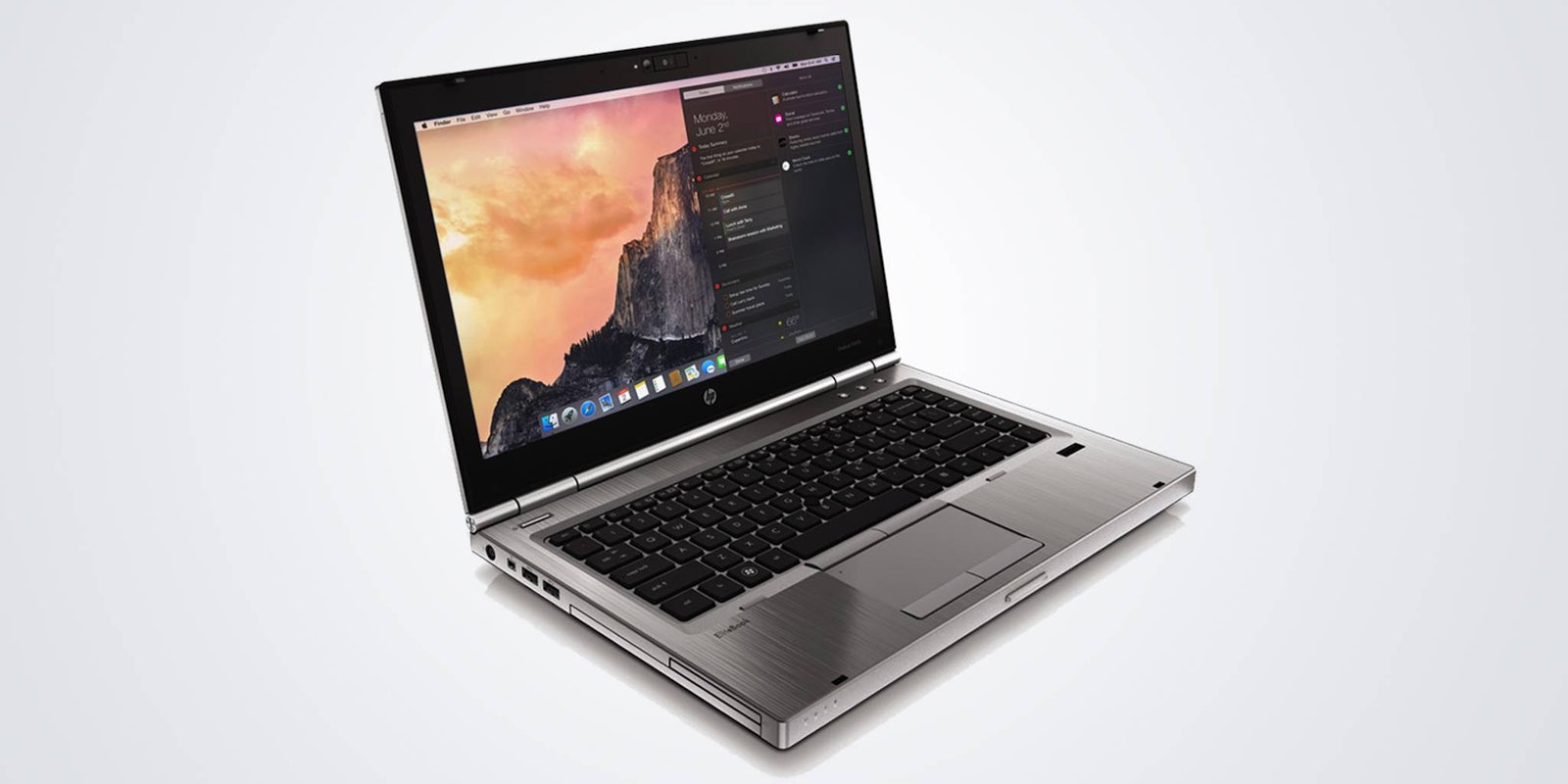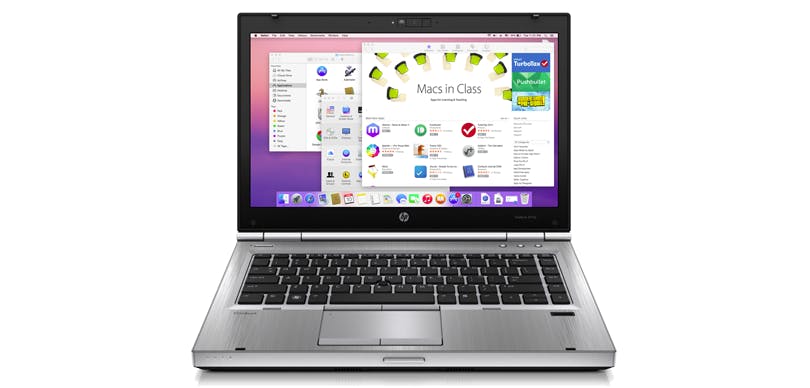The desire to have a Macbook and the economic reality of being able to afford a Macbook are two very different things. Not everyone has $1200 to throw at a laptop, but that doesn’t mean students and developers on a budget aren’t going to try. For years the bold could attempt to build their own fake Mac, called a “Hackintosh,” which is a PC that runs Apple’s OS X instead of Windows or Linux, but these projects are difficult and can be expensive as well. Now, a pre-made Hackintosh laptop has burst onto the scene, and it’s called the HacBook.
The HacBook is a budget priced HP laptop that’s been modified and optimized to run OS X. Starting at just $329 the HacBook is a cool grand cheaper than its official big brother, but with all the bells and whistles of a midrange Macbook. The Daily Dot reached out to Kim to ask him about the legality of his project, what inspired him to start it, and the incredible response from users that lead to thousands of pre-orders in the first day it was available.
How did you get into Hackintosh?
I started HacBook Elite as a half-serious joke last year while in college studying Product Design. I needed to run OS X to develop iOS apps on Xcode and, being the struggling college kid that I was, didn’t have $1200 laying around to drop on a MacBook. So I unwittingly dove into the world of hackintoshes and realized there’s no pre-built, ready-to-run product that non-technical people can just buy and start using.
So I created a quick brand and threw up a landing page to gauge interest from other cash-strapped iOS developers around the world (which there’s a lot of). Turns out there’s a lot of demand.
What was your first Hackintosh computer like?
My first Hackintosh was the very first unit of HacBook Elite that my roommate (EE major) helped me build. It worked great.
Have you heard from Apple yet about the HacBook project?
Not yet, but if they reach out to us with any issues we’ll be sure to work it out with them. We’re not trying to hurt anyone here.
What motivated you to create the HacBook?
As a product designer and developer, I’ve always been a huge fan of Apple’s OS X. It’s a beautiful operating system and although I totally see their stance in keeping hardware and software paired together and maintaining a high standard/consistency of hardware performance, I think it’s quite sad that this exact reason inhibits so many people from using it (due to high price).
My vision for HacBook is to enable anyone (Mac/OS X enthusiasts, iOS developers who can’t necessarily afford to buy a new or used Mac) to experience OS X. Another goal is to establish a solid, open community of HacBook users who can help each other out.
Beyond the price point how do you think Apple’s continued insistence on creating new models of MacBooks that can’t be repaired or upgraded by users has emboldened the Hackintosh community?
I actually can understand Apple’s stance on their decision, but I think it only widens the gap of accessibility for OS X. Nevertheless I’m excited for the new models and would be even more excited to see Apple introduce an iPhone 5C -esque economical model to their laptop product line.
How are you getting around the legal issues of selling the Mac OS on non-official hardware?
HacBook Elite is a ready-to-run kit/package that doesn’t come with OS X installed. It ships with everything besides that (i.e. Laptop, compatible WiFi chip, charger, user-friendly guide to getting started, customer support, etc). Technically, you can install and run Linux or Windows on your HacBook and do whatever you want with it – that’s solely up to the user. It’s merely optimized to run OS X.
What was the initial response to the launch of the HacBook website? What sort of feedback have you gotten from users?
I actually started the website as a half-serious joke a year ago while in college, but recently decided to revive it and actually try pushing it out with help from my friend Daniel. It did very well on Product Hunt, Hacker News, and some Facebook groups, stirring up a ton of discussion on each post. So far, we’ve racked up 3000 pre-orders in 15 hours.
What sort of specs will the baseline $329 model come with?
The baseline package comes with HacBook Elite comes standard with 6GB of RAM and 250GB HDD, charger, getting started guide, open-source installer (TBD), customer support, and an active user community. Once we have our store online, you’ll be able to customize your HacBook with more RAM, storage, or an SSD. Modularity and extendability is a big part of my goal with HacBook.
If Apple tries to shut you down do you have any alternatives ideas for selling the base kit without the OS pre-installed?
It already ships without the OS pre-installed. We do plan on branching out into more HacBook models besides the Elite (with varying price and performance). A huge part of HacBook is its customizability and modularity.
What is it about OS X that keeps drawing you back, even when you’re priced out by the market?
To me personally, OS X looks and feels much more cohesive and polished than Windows. It’s much more user-friendly, intuitive, and fits into Apple’s ecosystem nicely. It may not be perfect for power users, but I think it’s an archetype of technology wrapped into an intuitive package that anyone can pick up and start using. It simply works. I think Steve would be proud haha.
Do you have any other projects?
HacBook is part of Ember Labs, a startup studio that I run in New York that’s focused on people, speed, and execution. We’ve had a history of launching some highly-discussed products such as Rumblr. Also on the topic of operating systems, I just launched a web-based OS for my website (KIM/OS).



